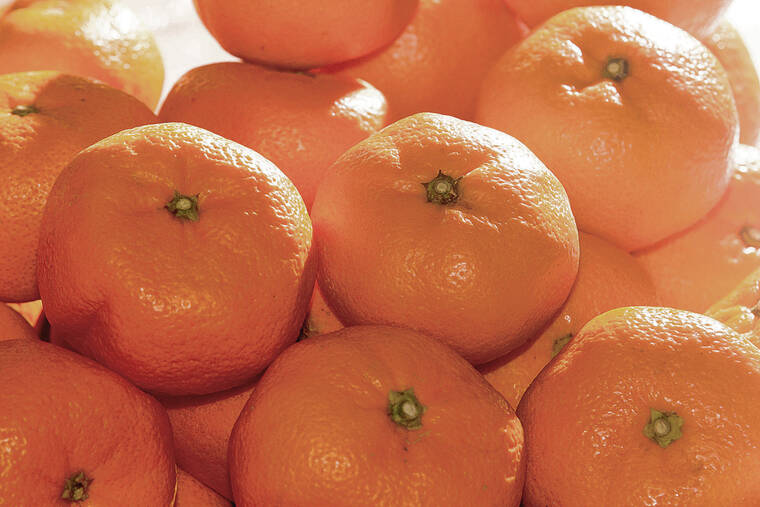Column: A diet from a variety of food groups is a key to good nutrition

STAR-ADVERTISER / 2017
Different food groups contain different sets of nutrients. Oranges and other citrus fruits are a good source of vitamin C.
Eating a healthy diet can sometimes seem overwhelming. But one of the best first steps to better nutrition is easy. All it takes is incorporating more variety in the food you eat. That means selecting an assortment of food from all food groups, grown in various locations and purchased from multiple producers, both large and small.
Question: Why is a variety of food from all food groups important?
Answer: Unlike a car that only needs refueling and an occasional part replacement, the human body requires a continuous supply of more than 40 essential nutrients for growth and repair. For example, intestinal cells are replaced about every three days; for this to happen, the body requires a set of nutrients for rapid cell replacement. These essential nutrient groups include water, protein, carbohydrates, fats, vitamins and minerals.
Because each food group, and type of food, contains a different set of nutrients, a varied diet provides the body with all the necessary nutrients, in adequate amounts, to meet a person’s requirements. For example, citrus fruit is a good source of vitamin C, while cow’s milk is a good source of calcium and vitamin B2.
Q: Why is consuming food produced from various locations important?
A: Soil contains many naturally occurring compounds, including soil minerals and potentially toxic heavy metals. These vary from place to place.
Don't miss out on what's happening!
Stay in touch with breaking news, as it happens, conveniently in your email inbox. It's FREE!
The surrounding environment, including traffic and industries, can also affect soil composition and, in turn, the elements absorbed by the plant. The kidneys excrete a certain amount of potentially harmful minerals daily; the remainder is stored in the body.
Since it is impossible to know with certainty what amount of minerals and heavy metals are in the produce and grains you consume, sourcing your food from a variety of locations offers a reasonable way to minimize over-consuming minerals and heavy metals.
Q: How can a person ensure that their food is safe?
A: Here are several other ways to increase food safety.
>> Choose food grown and processed in the U.S., where food is regulated by the U.S. Department of Agriculture and the Food and Drug Administration. Food from outside of the U.S. is more likely to have unsafe levels of heavy metals.
>> It’s OK to patronize small food companies, but understand that large manufacturers importing ingredients from around the world tend to test the raw ingredients they purchase for harmful compounds like heavy metals. Smaller companies might not have the resources to do this. Remember, it’s about variety.
>> Shop around. Different supermarkets generally buy their produce from different locations. Again, think variety.
Joannie Dobbs, Ph.D., C.N.S., and Alan Titchenal, Ph.D., C.N.S., are retired nutrition faculty from the Department of Human Nutrition, Food and Animal Sciences, College of Tropical Agriculture and Human Resources, University of Hawaii at Manoa.



